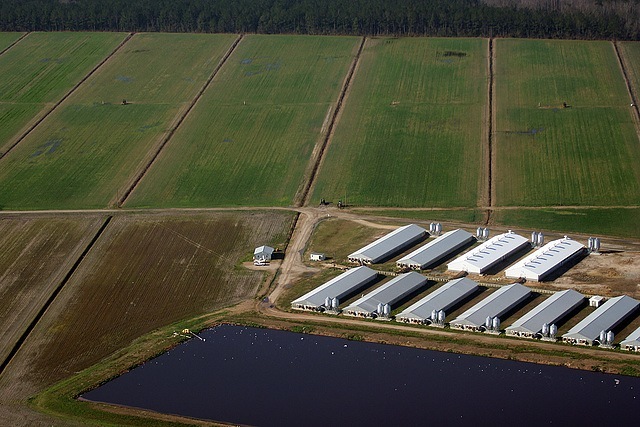
Waterkeeper Alliance Statement on
Proposed Farm Bill Confidentiality of Records Legislation
Updated July 29, 2014
Raleigh, N.C.—A provision contained in the NC Farm Act of 2014 would deem citizen complaints reporting violations of the law by agricultural operations and any records accumulated during a subsequent investigation confidential, meaning they could only be released to the public by court order.
Section 1 of House Bill 366 was added in committee and passed the Senate on June 26. The House voted not to concur with the Senate’s version, and the bill was sent to conference committee to reach a compromise. The Conference Committee released its version on July 24.
The compromised version allows complaints resulting in a violation to be released as public records, but there are many flaws in the bill as drafted. For example, it does not define “violation”, leaving open the question in a situation where a violation is documented but only a warning is issued of whether such a complaint and records would be made public. The provision also gives discretion to the agency of whether to investigate complaints at all.
“This is a deliberate action to conceal illegal activity that may threaten community health and safety, shield bad operators from public scrutiny, and to discourage citizen complaints against industrial livestock operations that violate the law,” said Matthew Starr, the Upper Neuse Riverkeeper. “Not only would the general public be left in the dark, but so would a complaining party be forbidden from learning how and if an agency addressed the complaint.”
“This is a prime example of the General Assembly trying to fix something that isn’t broken,” said Heather Deck, Pamlico-Tar Riverkeeper. “Complaints are the driver behind enforcement of the law against agricultural operations, and the preferred method by regulators. Why hide that process from public view?”
“It is a dangerous and extremely broad exemption of records from public access, as citizen complaints are among the most telling records of whether a particular operation is acting with concern for their neighbors,” said Gray Jernigan, staff attorney for Waterkeeper Alliance. “Coming on the heels of a similar attempt to hide records containing farm GPS and aerial photographs, it feels like Groundhog Day all over again. Proponents of this type of legislation seem more interested in shielding the agriculture industry from scrutiny than enforcing the law and protecting the citizens of North Carolina.”
State officials, including NC Agriculture Commissioner Steve Troxler, have stated that enforcement of the law against agriculture operations is significantly complaint-driven. Brian Long, a spokesperson for the Department of Agriculture, has stated that he is unaware of any unfounded complaints. Al Hodge, who worked for the NC Department of Environment and Natural Resources for over 30 years and served as the Supervisor of the Surface Water Quality Section in the Washington Regional Office, stated that complaints from citizens groups were “especially helpful” and “helped us to fill in the gaps in our water protection efforts due to a lack of personnel.”
Since March, Waterkeeper Alliance has submitted two complaints of improper hog carcass burial to the NC Department of Agriculture and Consumer Services. Both complaints resulted in acknowledgement that the law had been broken. However, in both instances, only a warning was issued with no penalty assessed.
The bill is set for a vote on the Senate floor on July 28. In the House, it will have to pass through the Committee on Agriculture and the Finance Committee before going to the floor for a vote.
We urge House leadership to protect the public’s right to access information, not concur with the Senate version of the bill, and remove Section 1 from House Bill 366.
>> ACT NOW: Tell North Carolina legislators to vote NO to House Bill 366. Click here to take action.